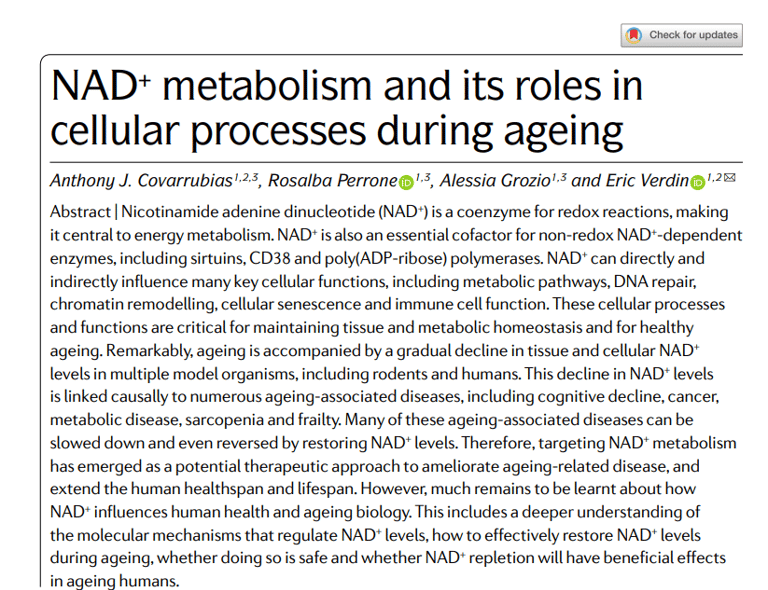Feel Younger, Live Better: The Science of NAD+
Discover the science behind NAD+, the powerhouse molecule revolutionizing health and aging. From boosting energy production to repairing DNA and supporting longevity, NAD+ plays a pivotal role in keeping your cells functioning at their best. Learn how maintaining and restoring NAD+ levels can unlock vitality, enhance health span, and combat age-related diseases, backed by cutting-edge research findings.
NAD+
1/15/20251 min read


Key Findings from the Study on NAD+:
Central Role in Cellular Function:
NAD+ is crucial for redox reactions, energy metabolism, and as a cofactor for non-redox enzymes like sirtuins and PARPs.
It directly influences metabolic pathways, DNA repair, chromatin remodeling, immune function, and cellular senescence.
Age-Related Decline:
NAD+ levels decrease with age in humans and animal models, contributing to metabolic dysfunction, neurodegeneration, and chronic inflammation.
This decline is associated with increased susceptibility to age-related diseases such as cognitive decline, cancer, and cardiovascular disorders.
Therapeutic Potential:
Restoring NAD+ levels through precursors like nicotinamide riboside (NR) and nicotinamide mononucleotide (NMN) has shown promise in mitigating age-related diseases in preclinical studies.
NAD+ augmentation therapies could potentially extend healthspan and lifespan by countering metabolic and immune dysregulation.
Mechanistic Insights:
The study delves into how NAD+ metabolism impacts DNA repair, epigenetic regulation, and circadian rhythms.
Age-related increases in NAD+ consumption enzymes (e.g., PARPs, CD38) further accelerate its depletion.
Clinical Prospects:
Emerging strategies to boost NAD+ include lifestyle interventions, dietary supplements, and targeting consumption pathways with inhibitors.
More studies are needed to establish efficacy and safety in humans.
Wellness
Holistic health services for anti-aging and recovery.
CONTACT
Vitality
contact@eternalwellness.center
+62 821-1824-9760 (WhatsApp)
© 2022. All rights reserved.
